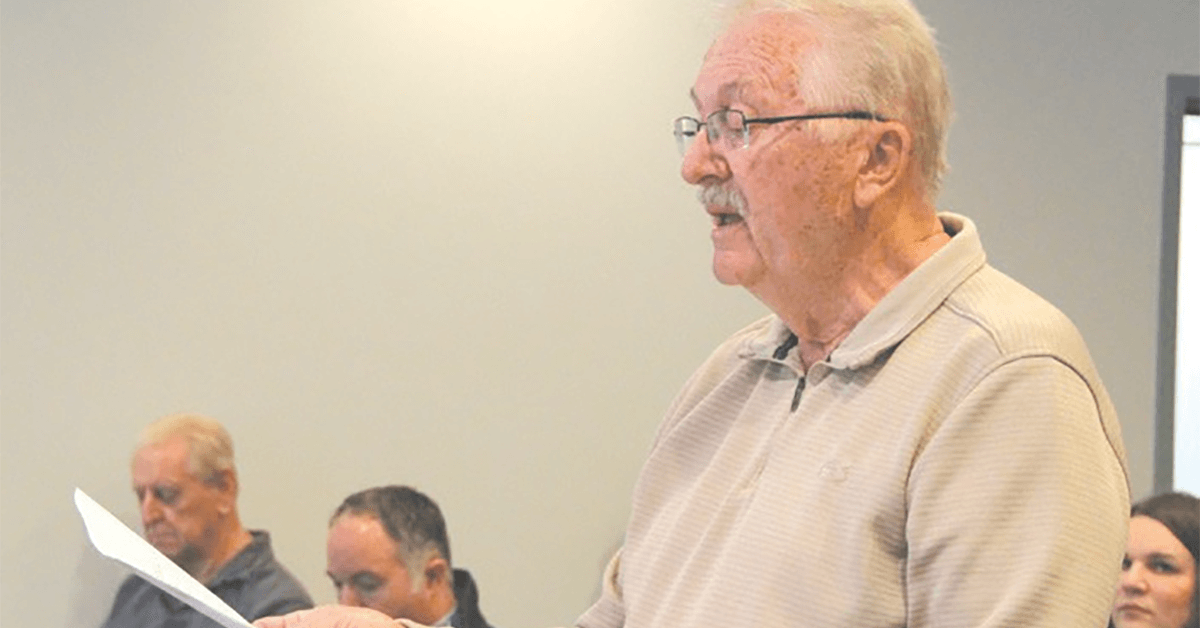The Therapeutic Journey: Understanding Michigan's Medical Cannabis Process and Benefits

The conversation around cannabis in Michigan has evolved significantly, particularly in the realm of medical use. Dr. David Crocker, a radiologist and co-owner of Michigan Holistic Health, champions the therapeutic application of cannabis, especially for chronic pain—a condition explicitly recognized under state law for medical cannabis use.
According to Dr. Crocker, Michigan recognizes about 20 different conditions that qualify individuals for a medical cannabis card. Among these, chronic pain is the most prevalent, but the spectrum of qualifying conditions extends to psychological issues such as PTSD, autism, and OCD, as well as physical ailments like cancer and chronic nausea.
For those in Michigan considering a medical cannabis card, the process mirrors that of a conventional medical appointment. Interested individuals initiate contact typically by phone, leading to the gathering of medical records. After a review, either a telephonic or in-person consultation follows to discuss one's condition and educate about cannabis. Subsequently, the necessary paperwork is assembled to apply for a card. Once mailed to the state, the card is usually issued within a few weeks.
Despite the potential health benefits, Dr. Crocker notes a lingering stigma within the medical community towards cannabis. He observes that many doctors, unfamiliar with cannabis from their medical training, are hesitant to recommend it. This hesitancy often stems from a lack of knowledge about its benefits, appropriate dosing, and general usage.
Nevertheless, acceptance is growing, especially since the legalization of recreational cannabis in Michigan in 2018. While recreational use is restricted to those over 21, medical cards can be issued to adults 18 and older, and under certain circumstances, to minors. These cases require the approval of two physicians and a guardian responsible for managing and overseeing the dosage.
Dr. Crocker pointed out that even before recreational cannabis was permitted, many sought medical cards as their only legal access point to cannabis. With recreational dispensaries now operational, there's been a noticeable decline in medical card applications, though benefits like more rigorous testing for contaminants and lower taxes still make the medical route appealing.
For medical users, experiencing a 'high' is not a requisite for relief. Dr. Crocker highlighted that the right dosage and form—like edibles—can provide relaxation and physical comfort without significant psychoactive effects, particularly important for elderly patients.
Personal testimonies further corroborate the benefits of a medical cannabis card. Rayna Freeman, a kinesiology sophomore, used her medical card to manage chronic headaches and nausea. The process, as outlined by Dr. Crocker, involved a form completion, a telephonic consultation, and a parental consent for minors. Freeman emphasized the relief she experienced, which profoundly improved her daily life.
Similarly, Haven Youngblood, a creative advertising sophomore, pursued a medical card for insomnia and anxiety. Knowledge of cannabis benefits, supplemented by familial connections to the cannabis industry, facilitated her access, significantly enhancing her sleep quality and reducing anxiety.
These experiences underline a growing acceptance and recognition of medical cannabis's role in managing and alleviating various medical conditions, reflecting a broader shift towards embracing its therapeutic potential within Michigan's medical community.
Primitiv and Stevie Van Zandt Collaborate to Introduce Silvio's Stash in Michigan

Stevie Van Zandt, famed for his role in "The Sopranos" and as a founding member of Bruce Springsteen's E Street Band, is launching his cannabis brand, Silvio's Stash, in the Michigan market. This venture is in partnership with Calvin Johnson Jr. and Rob Sims' cannabis company, Primitiv, which focuses on promoting wellness through cannabis. Van Zandt, who portrayed Silvio Dante, Tony Soprano's trusted advisor throughout the series, emphasized the benefits of cannabis in addressing pain, stress, and sleep issues, and advocated for the spread of cannabis education and the end of its criminalization.
Silvio's Stash will introduce to the Michigan market a product line that includes five .5 gram pre-rolled joints, presented in a collectible tin, with an initial offering limited to 5,000 units. These products will be available at Primitiv Niles and various other dispensaries across Michigan, such as Puff, Quest, House of Dank, Greenhouse, Pure Options, and others.
Celebrating this collaboration, Van Zandt shared his excitement on Instagram, highlighting the limited edition nature of this first batch. The partnership with Primitiv aims to leverage the shared values of quality and innovation in the cannabis industry, marking Silvio's Stash's entrance into the vibrant Michigan cannabis market.
Calvin Johnson, a 2021 Pro Football Hall of Fame inductee, remarked on the alignment between Primitiv's commitment to premium products and the mission of Silvio's Stash to provide exceptional cannabis experiences. Rob Sims shared the sentiment, noting that their NFL careers provided them a platform to advocate for destigmatizing cannabis and that partnering with Van Zandt amplifies their ability to educate the public on the benefits of cannabis.
Additionally, Primitiv is set to introduce its sibling brand, TURF, featuring a variety of premium, indoor-cultivated cannabis products. These products, including pre-packed 1/8ths and prerolls, will sport new packaging inspired by the classic Nintendo game, Tecmo Bowl, in celebration of its 35th anniversary. This innovative packaging aims to blend cannabis culture with nostalgia for gaming, appealing to both cannabis enthusiasts and gamers. The TURF products, cultivated at Primitiv's Webberville facility, will include popular strains such as Key Lime Thai, Blueberry Muffin, and others.
Lapeer Community Submits Petition Against Cannabis Facility Odors

Residents of Lapeer, Michigan, are expressing growing concern over the pervasive smell of cannabis emanating from a local grow facility. At a recent Lapeer City Commission meeting, former judge Mike Higgins, now a resident of Andrews River Estates, voiced these concerns on behalf of his neighborhood. Higgins, along with 46 other residents, submitted a petition urging the city to take action against the ongoing odor issue, which they believe diminishes their quality of life.
The petition highlights the residents' frustration, stating, "Whereas we want to stop the pollution and odor coming from the cannabis growing and production facilities in the area, and whereas this pollution has been ongoing for months without a specific remedy in place; and whereas we believe this pollution is a nuisance under the city cannabis licensing ordinance and interferes with lawful use and enjoyment of our property." It demands that growers and producers submit and implement a plan to eliminate the odor as a condition of maintaining their licenses.
Lapeer attorney Tim Denney and resident Bryan Cloutier also spoke at the meeting, emphasizing the need for better planning, zoning, and code enforcement to manage the cannabis industry effectively. Cloutier criticized the current approach, suggesting that more strategic planning could have prevented these issues.
In response, Lapeer City Manager Mike Womack acknowledged the community's concerns, which he shared, noting that a six-month moratorium on new cannabis businesses had already been enacted to allow time to review and strengthen city policies and ordinances.
The meeting also addressed other civic matters, including pedestrian safety and beautification initiatives proposed by residents Boris and his wife, who suggested implementing "traffic calming" measures such as painted intersection murals and curb extensions. Mindy Schwab from the Lapeer Main Street Downtown Development Authority updated on activities and upcoming events, emphasizing efforts to enhance downtown Lapeer's appeal and accessibility.
Moreover, the City Commission approved several motions, including a lease agreement for a historic pavilion, a special event request from Lapeer Community Schools, and road repairs at Mt. Hope Cemetery. These approvals underline the commission's ongoing commitment to improving city infrastructure and community life.
This episode illustrates the complexities of local governance, where civic improvements and industrial growth must be balanced with the preservation of residents' quality of life.
Ionia County Hosts Town Hall to Discuss Youth Substance Abuse

A town hall meeting is scheduled in Ionia County to address concerns regarding underage drinking, vaping, and cannabis use among the youth. The event will take place from 6:30 to 9:30 p.m. on Friday, May 17th, at the Ionia Armory Community Center located at 439 W. Main St.
Organized by the Ionia County Health Department in conjunction with the Ionia County Substance Abuse Initiative Coalition, this adults-only gathering aims to enhance awareness and foster community involvement in tackling substance abuse issues. Charlean Hemminger, the coalition's coordinator and a health educator at the Ionia County Health Department, highlighted the town hall's support from state and federal grants, including the Michigan Department of Health and Human Services and the Drug-Free Communities Grant.
Matthew VanCamp, who joined the Ionia County Health Department as the Drug-Free Communities Grant Coordinator earlier this year, emphasized the significance of the event for parents. He noted that the town hall offers an excellent platform for parents to learn effective communication strategies with their children concerning alcohol, nicotine, and vaping.
The keynote speaker, Cara Ludlow, assistant director of wellness and counseling services at the College of Osteopathic Medicine at Michigan State University, will address the challenges faced by children today and the importance of parental engagement in their lives.
Attendees who participate in a survey at the event will be rewarded with a voucher for the Taqueria El Azteca food truck or a gift card to a local restaurant, highlighting the importance of community feedback in such initiatives.
Through this event, organizers aim to galvanize community efforts to reduce substance abuse among the county's youth by empowering parents and providing access to community resources.
'Pot for Potholes': Bay City's Strategy to Enhance Neighborhood Roads

Bay City has adopted a new initiative to allocate cannabis sales revenue towards enhancing local infrastructure, particularly focusing on neighborhood streets. This program, humorously named "Pot for Potholes," aims to address the long-standing issues of road maintenance in residential areas.
Chris Girard, Sixth Ward City Commissioner, highlighted that the city garnered $900,000 last year from cannabis sales, a figure he anticipates will increase. These funds will now be directed exclusively towards infrastructure projects. Girard emphasized the need to channel more resources into neighborhood improvements, noting the significant expenditures on roads that residents felt were not benefiting their local areas.
"The resolution I presented, Pot for Potholes, is all about getting those improvements into our neighborhoods where they're desperately needed," Girard stated. He expressed a strong commitment to finding solutions to enhance the quality of local streets, which form the backbone of daily community interaction.
Residents have responded positively to the initiative. Daniel Vanguilder, a local, praised the city's decision, stressing the importance of reinvesting in the city to improve living conditions. "My own street is bumpy, noisy, and dusty, especially when heavy vehicles pass by," Vanguilder described. He sees the directed funds as a crucial step towards rectifying these issues.
Under the resolution, the city manager is tasked with the allocation of state-provided cannabis revenue to these infrastructure projects. The focus will be on making tangible improvements to neighborhood streets, enhancing the overall quality of life and well-being of the community.
Moreover, the resolution mandates periodic reports to the city commission. These updates will track the progress and outcomes of the infrastructure spending, ensuring transparency and accountability in the use of these funds.
Adjustments to the city's budget will be necessary to implement the Pot for Potholes initiative effectively. This strategic move is seen as essential for ensuring that all areas of Bay City benefit fairly from the revenue generated by cannabis sales, avoiding the neglect of less prominent districts in favor of more affluent areas.
Building a Cannabis Empire: Inside C3 Industries' Expansion Strategy

C3 Industries, a Michigan-based cannabis company, was founded in 2018 by brothers Ankur and Vishal Rungta. In a few short years, it has expanded significantly. Initially starting in one state, C3 now operates in five states, with plans to enter a sixth soon. The company manages 24 High Profile dispensaries across Michigan, Missouri, Massachusetts, Illinois, and New Jersey, with Connecticut set to join the list. Additionally, C3 oversees more than 250,000 square feet of cultivation and manufacturing space across these states, although Illinois and New Jersey currently function as retail-only markets.
The company's brand portfolio includes Cloud Cover, Galactic, and Habitat, each offering a diverse range of cannabis products catering to different tastes, potency levels, and price points. This diverse operational footprint highlights C3's aggressive yet strategic expansion, demonstrating its capability to scale operations while adapting to varying state laws and market conditions.


 Helpful Links
Helpful Links